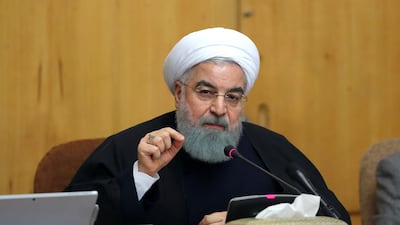The trial has started in an Iranian court for 14 petrochemical industry executives charged with embezzling $7.4 billion (Dh27.18 billion) under rising pressure from public anger over widespread corruption.
In what has become one of the biggest corruption cases in the region, the 14 executives are accused of embezzling from state funds by creating overseas shell companies to circumvent sanctions under former Iranian President Mahmoud Ahmadinejad, the state run IRNA reported. Eleven were tried in court and three were tried in absentia.
Reza Hamzehlou, the former director of Iran Petrochemical Commercial Company, and Marjan Sheikholislami, were both convicted of stealing government funds through the establishment of trading companies in Turkey. Most of the others caught in the embezzlement case were Iranian upper management executives or board members of Iran’s petrochemical companies.
Rising public anger over levels of cronyism and economic nepotism within industry and government has pressured President Hassan Rouhani to act on widespread corruption within Iran.
The case is the latest in the so-called crackdown on corruption that Tehran has vowed to pursue under pressure from its increasingly disenfranchised population.
Iranian citizens have suffered under the return of US sanctions as they are forced to cope with steep increases in prices and the collapse of the Iranian rial.
The World Bank expects Iran’s economy to go into recession until 2020 and experience stagflation, characterised by rising prices, low growth and high unemployment.
The trial began one day after Iran’s Supreme Leader Ayatollah Khamenei appointed the ultraconservative cleric Ebrahim Raisi, a one-time presidential hopeful, as head of the judiciary.
Mr Raisi was the deputy prosecutor at the Revolutionary Court of Tehran during the 1980-88 Iran-Iraq war.
Human rights organisations, opposition members and dissidents have accused the tribunal of overseeing the execution of political prisoners without due legal process during his tenure.
Many of those charged have been tried in absentia in what local newspapers labelled one of the biggest embezzlement cases in history.

